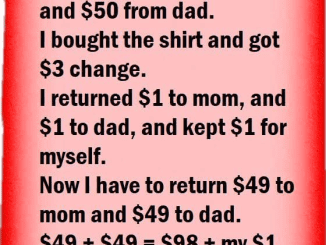For too long, society has wrongly vilified the single life, painting it as a sad and lonely existence. But new data is turning that outdated narrative on its head, revealing that singlehood is actually a preferred and empowering choice – especially for women.
Recent findings from Mintel’s Single Lifestyles UK 2017 Report show that the majority of singles, particularly women, are happily embracing their independent status. This marks a significant shift, as societal pressures have long pushed the notion that a fulfilled life requires a romantic partner.

However, the data paints a more nuanced picture. While single women are thriving, their male counterparts are struggling to adjust to the solo lifestyle. This divergence highlights the deep-seated gender imbalances that still exist when it comes to traditional domestic skills and emotional support networks.
In this article, we’ll dive into the key insights from the Mintel report and explore why being single has become the new “happy” for women – and why men are still lagging behind in this revolution.
The Mintel report points to a remarkable societal shift over the past two decades – one that has instilled young women with a greater sense of independence and self-sufficiency.
“Over the last 20 years in particular, there has been a societal shift towards instilling young women with greater independence,” explains Jack Duckett, Senior Consumer Lifestyles Analyst at Mintel. “This has included encouraging them to develop many of the skills that have traditionally been associated with men, including household maintenance and DIY, consequently reducing their need to have ‘a man about the house’.”
This empowering trend has allowed women to thrive on their own, without feeling the same pressure to find a partner to complete their lives. As a result, the data shows that single women are far more content with their relationship status than their male counterparts.
The Mintel report paints a stark contrast between how men and women are faring in the single lifestyle. While the majority of single women reported being happy with their status, the sentiment was not equally shared among single men.
Specifically, the data revealed that 61% of single women said they were happy being unattached, compared to only 49% of single men. This gap highlights the deep-seated societal biases that still exist when it comes to singlehood.

“By contrast, there is far less evidence of the opposing trend, with many young men still ill-equipped when it comes to traditionally feminine skillsets, such as washing, cleaning and cooking, making it harder for them to fly the nest,” Duckett explains.
This gender disparity in domestic competence means that single men are often less equipped to thrive on their own, leading to a higher level of discomfort with their solo status.
The Mintel report also sheds light on the emotional impact of being single, revealing another key difference between men and women.
“It can also be strongly tied to women being typically better at creating support groups with whom they can discuss their thoughts and feelings, putting less pressure on the need for a relationship,” Duckett notes. “However, with many men still largely finding it difficult to be open about their thoughts and feelings, the absence of a partner could mean that they have no one they can talk with about issues affecting them.”
This lack of emotional support networks leaves single men more vulnerable to the perceived downsides of singlehood, such as loneliness and isolation. In contrast, single women are more likely to have strong social circles and support systems to turn to, mitigating the potential negative impacts of being unattached.
Another interesting insight from the Mintel report is the difference in attitudes towards singlehood across age groups. The data shows that younger singles, particularly those in the 18-24 age range, were more likely to worry about being alone compared to their older counterparts.

Specifically, the report found that only 38% of singles overall worried about being alone, but that number jumped to 54% among the 18-24 age group. This suggests that as people gain more confidence and self-assurance with age, they become less beholden to societal pressures to be in a relationship.
“If being single is the right choice for you, then nobody should be able to make you feel otherwise,” the report rightly concludes. The data demonstrates that the more comfortable and content individuals become with themselves, the less they are bothered by societal expectations to couple up.
While the Mintel report did identify some potential drawbacks to being single, such as financial concerns, the overwhelming narrative is one of empowerment and liberation. By rejecting the outdated notion that singlehood is a sad or lonely existence, single women are actively reclaiming their independence and autonomy.
“It’s a really important step, because society so often associates singlehood with loneliness and time spent on your own as being a bad thing, when we really shouldn’t,” the report aptly notes.

This mindset shift represents a profound cultural transformation, as single women embrace their status not as a default or a deficit, but as a purposeful and positive choice. Rather than seeing singlehood as a burden, they are celebrating it as a pathway to self-discovery, personal growth, and fulfillment.
The Mintel Single Lifestyles UK 2017 Report paints a powerful portrait of the changing tides when it comes to singlehood. While society has long viewed being unattached as a negative or undesirable state, the data reveals that single women are actually thriving and happier than their male counterparts.
This divergence highlights the deep-seated gender imbalances that still exist, particularly when it comes to traditional domestic skills and emotional support networks. As women have been empowered with greater independence, men have struggled to adapt to the solo lifestyle, often feeling ill-equipped and isolated.
Ultimately, the Mintel report serves as a crucial wake-up call, challenging us to rethink our outdated assumptions about singlehood. It’s time to recognize that being single is not a state of lack or loss, but rather a deliberate and empowering choice – one that is being embraced by a growing number of women who are redefining what it means to live a fulfilling life.


